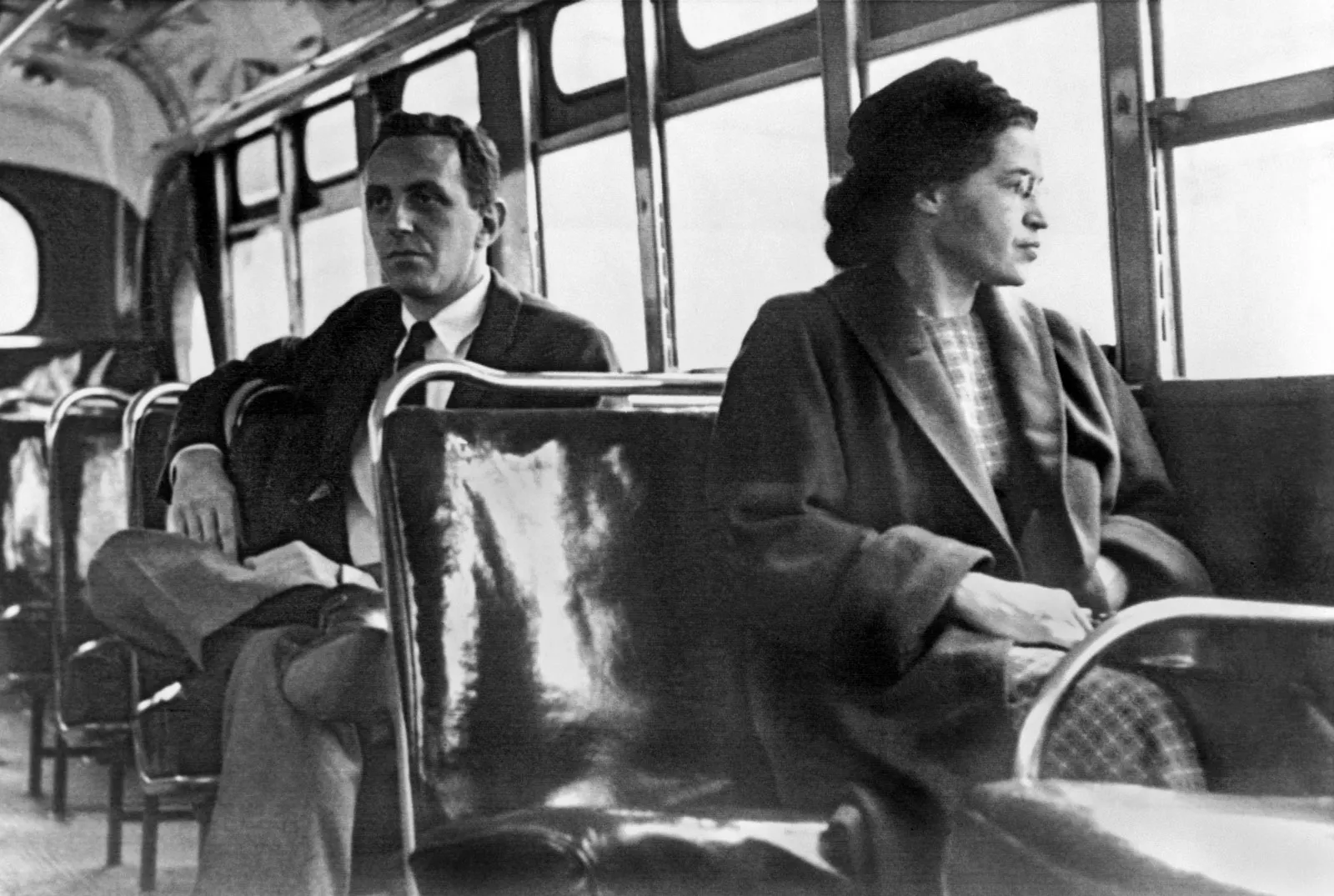Rosa Parks: A Beacon of Courage in the Heart of the Civil Rights Movement
Early Life and Family: Rosa Louise McCauley Parks, born on February 4, 1913, in Tuskegee, Alabama, would grow up to become an enduring symbol of courage in the fight against racial injustice. Raised by her grandparents in Pine Level, Rosa’s early life was shaped by the pervasive racial segregation of the American South.
Rosa married Raymond Parks, a barber and dedicated activist, in 1932. Together, they would become advocates for civil rights, with Rosa immersing herself in the activities of the NAACP (National Association for the Advancement of Colored People).
The Fateful Bus Ride – December 1, 1955: On a seemingly ordinary day, Rosa Parks took a seat on a Montgomery, Alabama bus. When asked to give up her seat for a white passenger, she refused. This simple act of defiance, born out of fatigue and frustration with the daily indignities of segregation, marked a turning point in the civil rights movement.
Arrested for violating segregation laws, Rosa’s action ignited a spark that would blaze into the Montgomery Bus Boycott.
Civil Rights Activism: Rosa Parks’ arrest led to the formation of the Montgomery Improvement Association, with a young minister named Martin Luther King Jr. at its helm. The ensuing Montgomery Bus Boycott, a 381-day protest against segregated buses, showcased the power of collective nonviolent resistance.
As a key figure in the boycott, Rosa emerged as a symbol of resistance, inspiring countless others to join the fight against racial inequality.
Achievements and Contributions:
- Montgomery Bus Boycott:
- The successful conclusion of the Montgomery Bus Boycott in 1956 marked a significant victory against segregation. The Supreme Court declared Alabama’s bus segregation laws unconstitutional, setting a precedent for dismantling segregation in public transportation.
- Civil Rights Activism:
- Rosa Parks continued her activism, participating in various civil rights initiatives, including the Southern Christian Leadership Conference (SCLC) and the NAACP.
- Medgar Evers and the March on Washington:
- Parks played a pivotal role in supporting civil rights causes after the murder of Medgar Evers, participating in the historic March on Washington for Jobs and Freedom in 1963.
- Later Life and Legacy:
- Rosa Parks’ contributions were acknowledged with numerous awards, including the Presidential Medal of Freedom and the Congressional Gold Medal. She co-founded the Rosa and Raymond Parks Institute for Self Development to motivate young people to reach their full potential.
Changing the World: Rosa Parks’ simple act of refusing to give up her bus seat became a catalyst for change, sparking a wave of activism that reverberated far beyond the segregated buses of Montgomery. Her courage, dignity, and commitment to justice transformed her into an international symbol of resistance against oppression.
Rosa Parks’ legacy extends beyond her lifetime. She is remembered as the “Mother of the Civil Rights Movement,” a moniker that encapsulates her pivotal role in inspiring a generation to challenge the status quo. Rosa’s journey from a humble seat on a bus to the forefront of a movement illustrates the profound impact that one person’s courage can have on the world.





